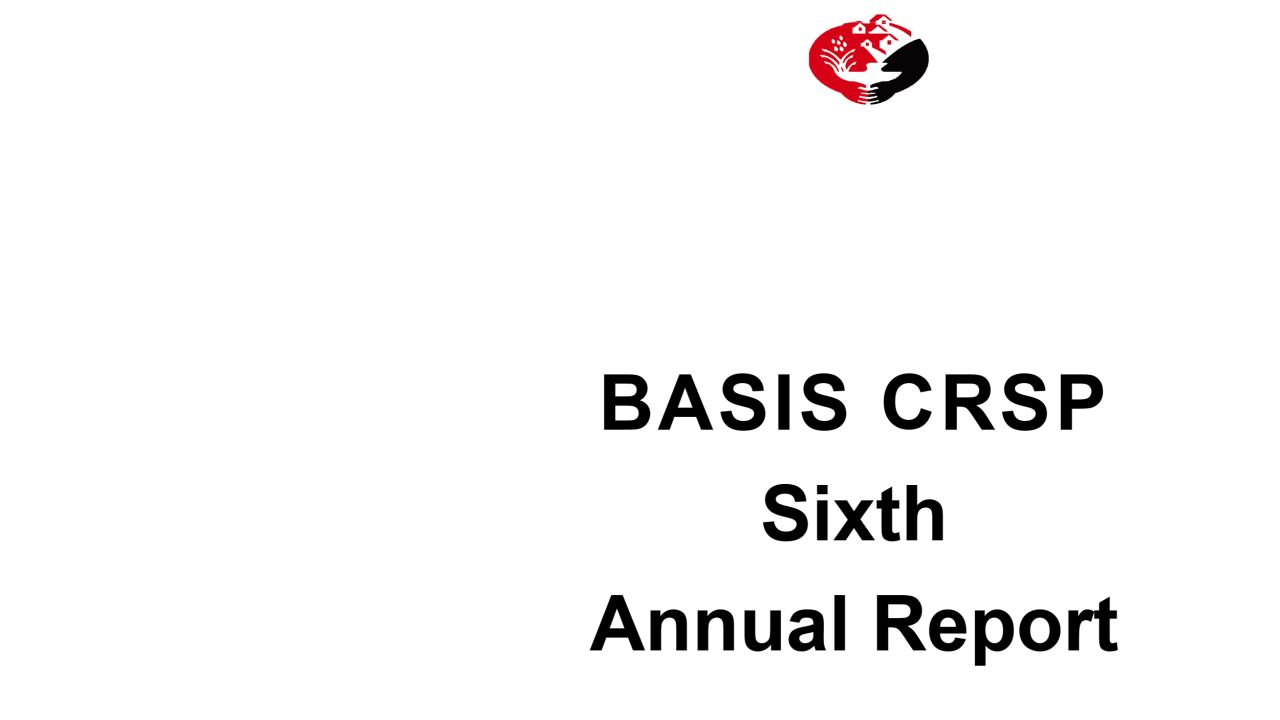
By helping make markets work for all, BASIS CRSP seeks to improve the quality of life for people in rural areas of the developing world. With a cutting edge and innovative research program, BASIS produces impacts through its publications, training, education, capacity building, and informed policy recommendations that help facilitate broadly based and sustainable economic growth.
More and more people around the world face hunger and malnutrition even as food supplies are abundant. Aid programs that deliver food for emergencies can be of short-term benefit, but there remains a critical need to prevent more people from falling into poverty and to find ways for those who already are poor to escape poverty permanently.
Strategies for accumulating and protecting assets are important. Also there must be sound strategies for recovering from disasters such as drought, war, and HIV/AIDS, avoiding the degradation of one’s own resources and those shared with others, and participating in the institutions that manage resources and other assets. BASIS seeks to provide these strategies through a coherent research program that addresses a basic cause of chronic poverty: lack of access or unequal access to factors of production such as land, water, labor, and finance, as well as to services, information, and market opportunities.
Solutions are not as simple as linking the poor to rural factor markets. Often these markets are missing or imperfect, leaving non-market institutions and rules to broker resource allocation and access. Missing and imperfect factor markets often underlie problems of food insecurity, poverty, and unsustainable growth. In such an environment, a rural household’s ability to access, accumulate, and effectively utilize resources is constrained, and people often resort to unproductive accumulation strategies. Increasing numbers of households find themselves unable to respond to economic opportunities that emerge while also lacking effective strategies for coping with economic downturns, disasters, and changes brought about by political, social, or economic restructuring.
Methods for helping the rural poor often are regionally specific, yet lessons learned in one area may in fact provide key elements to solutions in other areas. A well-balanced examination across regions of rural factor markets and their role in enhancing or constraining growth can inform policy that seeks to foster rural economies in which growth is a sustainable foundation for broad rural prosperity.
Developing Innovative Solutions
In 1996, the United States Agency for International Development (USAID) launched BASIS—a collaborative research support program that examines the interactions and inter-relationships of land, water, labor, and financial factor markets and the impacts of policy or policy reform in helping improve access to and efficiency of factor markets. Phase I of the program ended in September 2001. At that time, USAID awarded the University of WisconsinMadison an additional five-year grant to extend the research to 2006.
BASIS Phase II is comprised of individual research projects in multiple regions of the world designed to have policy impact both locally and globally. The projects emerge from a competitive process that selects the top proposals submitted in response to a call for work on pressing global constraints to growth. Projects are intended first to understand the constraints to development and then to deliver innovative and creative policy solutions.
Although each project focuses on a country or a regional context, BASIS looks for lessons and policy innovations that can be applied worldwide. Initially, the following five primary research projects were supported; each runs three years and receives approximately $200,000 per year in core funds.
- Input Market Constraints upon the Growth of Russian Agriculture: Land, Labor, Capital, and other Inputs under Alternate Economic Reform Policies
- Institutional Innovations to Improve Equity Sharing under Privatization and Farm Restructuring: Helping Land Reform Beneficiaries Gain Access to Land and Financial Resources in Central Asia and Southern Africa
- Institutional Dimensions of Water Policy Reform in Southern Africa: Addressing Critical Water-Land Intersections in Broadening Access to Key Factors of Production
- Rural Markets, Natural Capital, and Dynamic Poverty Traps in East Africa
- Assets, Cycles, and Livelihoods: Addressing Food Insecurity in the Horn of Africa and Central America Three smaller projects were added in 2002.
- Credit Reporting Bureaus and the Deepening of Financial Services for the Rural Poor in Latin America
- The Structure and Performance of Rural Financial Markets and the Welfare of the Rural Poor: A Comparative Study in Peru and Mexico
- The Long-Run Effects of Access to Financial Services on Asset Accumulation, Economic Mobility, and the Evolution of Wellbeing: Revisiting Agricultural Commercialization in Bukidnon, 1984-2003
Together, these eight projects target imperfections in factor markets and other resource allocation institutions that result in the following constraints to broadly based and sustainable growth:
- Global Constraint 1: Ineffective agricultural resource use in post-reform economies
- Global Constraint 2: Unsustainable use of environmentally sensitive resources
- Global Constraint 3: Poverty and food insecurity traps
As detailed below, each BASIS project addresses one or more of these constraints in innovative ways with the goal of providing policymakers with solutions in specific regions for specific populations while also establishing and maintaining a dialogue among researchers and policymakers that allows for synthesis across regions and a broader understanding of the constraints.
